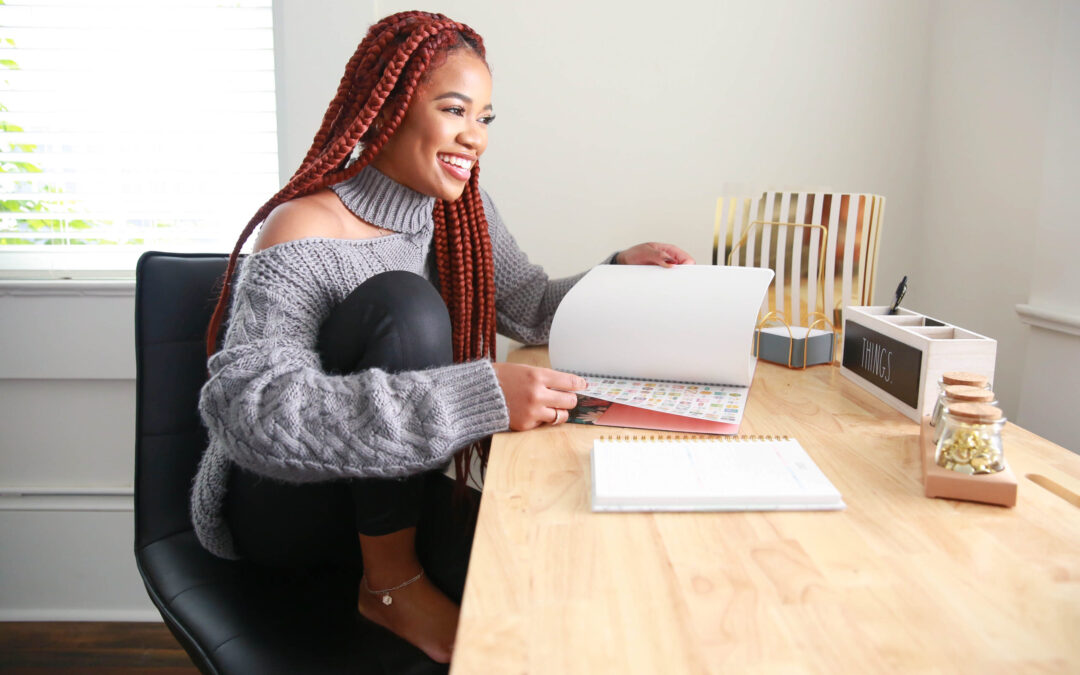One of the populations I enjoy working with is what I refer to as “high functioning and high achieving” Black women. This is a group that can often be neglected due to having the outward appearance of being put together or having it all figured out. Perhaps she is objectively successful academically, at work, or in other aspects of life, yet internally she feels like things are spiraling out of control and at any moment they will be discovered/found out (as not being put together).
Often, it doesn’t even occur to these women to seek support initially, as they are often the person that people in their lives come to for help. She may feel she doesn’t have time for herself, or she may not realize that there are other options. The pressure to succeed in these cases is frequently intensified by the fact that the emotional, physical, or financial wellbeing of several other family members may seem to be riding on her shoulders.
She may be telling herself “failure is not an option because so many people are counting on me”… and asking for help can often feel like admitting failure or defeat to these women.
One of the main contributors to this dynamic is what is known as the Superwoman or Strong
Black Woman schema. Essentially, this is the idea that Black women can, should, or are built to carry more “weight” than others.
It is the assumption that we need less help, that it is our job to put others first, or that it is our responsibility to fix other people’s problems.
These notions stem from more explicit historical oppression and racist ideologies. However, over time they have transformed and been internalized and passed on through our own communities. Our maternal ancestors and relatives often teach us to be strong because it is how they survived, and often it was the only way they knew how to protect themselves and us. Depending on the source, the Strong Black Woman or Superwoman schema can take the shape of the gift of resilience, or the anchor of oppression. Sometimes it is both at once, and so much more.
As Black women, we get the message from so many different sources that not only are we not allowed to ask for help, but we should take on the burdens of those around us. These messages might come implicitly or explicitly. We often learn from our mothers, aunties, and grandmothers that love means sacrificing your own needs and desires for others, and there is no such thing as giving too much of yourself to those you love.
We might have seen them fixing everyone else’s plate before they sit down to eat, spending their resources on everyone else without thinking of how much would be left over for them, or holding themselves together in painful situations so that no one else feels afraid. Maybe they told us not to cry or be too emotional in front of others, because they could start to view us as weak, which could be dangerous.
 The undertone of these expressions is often “I love you, I am scared for you, and I want you to survive”.
The undertone of these expressions is often “I love you, I am scared for you, and I want you to survive”.
Somewhere along the line, we often learn that someday, the Strong Black Woman will be our role to play too.
Alternatively, when we receive this message from outside of our homes, extended families, or communities, it may have a more sinister undertone. From the world, from the sources that our mothers, aunties, and grandmothers are often trying to protect us from, it can sound like:
“Your feelings do not matter”
“Figure it out on your own”
“Prove that you belong here”
At work this often looks like being expected to perform above and beyond your peers only to receive equal or lesser compensation.
In college this often looks like being too afraid, or alternatively too proud to ask for help in order to protect the image of having it all together. Alternatively, it often happens that there truly is less support for Black women in academia even if they were to reach out.
In society this looks like being expected to perform the physical and emotional labor of protesting, protecting, and educating everyone around us for the betterment of us all- often without recognition that we deserve.
Those of us who carry the Superwoman schema have often experienced a cycle of identity based trauma that forces us into this space. Often, we learned we could not, should not, or were not allowed to count on others. Figuring things out on our own or with minimal help from others helped us navigate through life up to this point, but eventually it can start to harm us more than it helps.
In our daily lives, we may notice some symptoms of the Strong Black Woman schema showing up as a range of downplaying and disregarding emotions– ignoring them, not knowing how to express them, stuffing them down until they burst out at inopportune moments.
Other signs may include:
Laughing about difficult circumstances to keep from crying
Discussing or recounting our trauma with a straight face
Saying “it is what it is” when we know that it still hurts
And this is a big one—
Taking on the weight of the world to avoid being seen as selfish
We often imagine the “Superwoman to selfish” trajectory being much more of a slippery slope than it is in reality.
Saying “no” when you need (or simply want) to preserve your resources for yourself does not make you selfish. 
Having boundaries, putting yourself first, not over-extending yourself, not sacrificing more than what you have to give for others is an act of self-love.
When it is possible, because I recognize that some circumstances may always call for us to be “strong”- life is not easy for Black women- choosing yourself is a way to honor the intentions that your maternal ancestors and relatives have for you. Putting your needs at the top of the list is a great way to protect yourself, to nurture yourself, and to ensure your survival. Your mothers, aunties, and grandmothers may even learn a thing or two from your example!
Notably, one of the ways that I have seen Black women start to shed the Superwoman cape is the sentiment of “I just got tired of it”. Being “sick and tired” or “good and done” with living up to these expectations or carrying around all of that extra weight is often the catalyst for change — the thing that brings us to therapy or the tipping point where we decide to start setting more boundaries. The Superwoman schema was never sustainable, and if anything in recent years we collectively learned life is too short to keep forcing ourselves into spaces that were never meant for our good anyway.
Now I’m not saying get reckless, drop out of school, quit your job, ignore your family- but I am saying… reprioritize.
I am not saying throw away your armor- I am saying sometimes you are allowed to take it off to stretch, grow, and heal.
Add yourself to the list of people to care for, and as close to the top as possible. Therapy is a great place to start. It can help to have someone who is neutral to your life situations, but fully invested in your empowerment to hold space and reflect with you. Sometimes, even saying what you’re going through out loud can help to ease the burden enough for you to keep going until you decide to make more visible changes that impact others as well. Let therapy be a space to imagine a world where you put yourself first.
The Worth, Wisdom and Wellness Center provides Trauma & EMDR therapy, Therapy for Perfectionism and Low Self-esteem, Therapy for Anxiety and Depression, and Faith-Based Therapy to Black Women and Women of Color.
If you are located in the state of Georgia and interested in starting your healing journey, you can follow any of the steps below.
- Contact us to schedule your first appointment and learn more about our services.
- Review our About Us page to learn more about our trauma trained providers.
- Review our FAQs page to learn more about therapy at our center.
We look forward to being a part of your healing journey.
Follow the Worth, Wisdom, and Wellness Center on IG @worthwisdomwellness

